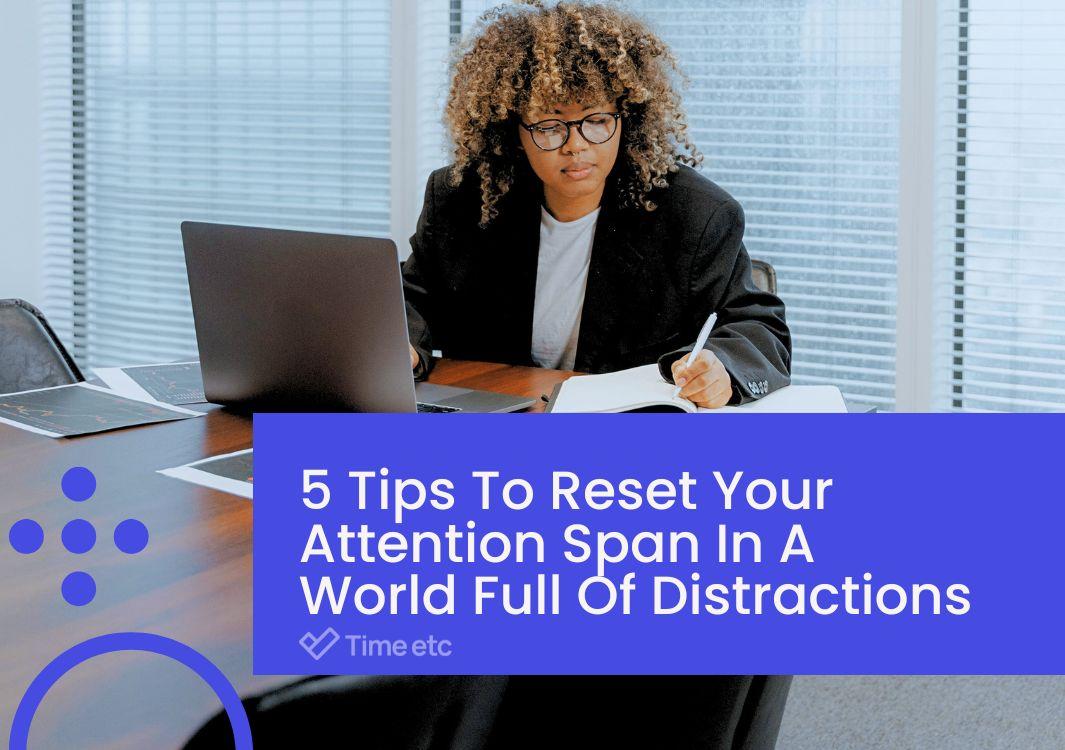If you asked someone to picture an entrepreneur, chances are they’d think of someone who’s “always on”, with a calendar full of meetings, an inbox packed with emails, and a to-do list as long as their arm.
But why is busyness the most natural – or preferred – state for business owners?
The Busy Entrepreneur
For some, it’s the sense of pride we get when telling others. It's the appreciative shrug we give when someone tells us we're working too hard. Our culture thrives on movement and productivity, and being busy feels like a badge of honor, like we must be doing something right.
For others, being busy means you don’t have to think, you just have to do. A day spent going through the motions and putting out fires keeps us from more difficult tasks or complex problems but still feels like we’ve “done” a lot.
Similarly, another common reason is the unshakeable feeling of guilt that consumes us if we think about offloading work or taking time off. We’ve built our businesses from the ground up and know them like the back of our hand, it’s easy to feel like we’re the only ones that can do a good job of keeping the wheels moving. And if we’re responsible for a lot of tasks or a lot of processes depend on us, it can feel like our way of proving our value within the business.
Despite the enduring stereotype of the busy entrepreneur and the various psychological reasons that draw us towards busyness, the truth is, you won’t find the world’s most successful business owners advocating for keeping busy as a success strategy.
When Microsoft founder Bill Gates and business magnate Warren Buffett both sat down for a recent interview, it birthed the phrase “busy is the new stupid”. Interview host Charlie Rose was given a look inside Buffett’s diary calendar and was shocked to find it mostly blank. “It’s not a proxy of your seriousness that you’ve filled every minute in your schedule,” said Gates. Virgin founder Richard Branson agrees. “If you free up some time to think freely, you’ll be able to see the bigger picture much easier,” he shared in a 2017 blog post.
The “Busyness” Trap
To say that people who are always busy will struggle to be successful is not to say that they are not hardworking or ambitious enough. On the contrary, busy people usually have extremely strong work ethics, motivation, and drive to succeed, which is perhaps the main reason they are always busy! It’s not a question of working harder, it’s about working more effectively.
When you are less busy, you have more time for planning, new ideas, strategy, and decision-making, and you are able to focus more deeply on your work or enter a flow state. You’re spending your time and energy on more high-impact tasks that push your business forwards.
The busier you get, your time for planning, new ideas, strategy, and decision-making decreases. Not only that, the quality of your work begins to decrease because you don’t have enough time to complete tasks to a high standard. And because you haven’t had enough time to plan more high-impact tasks, you end up spending your time and energy on less significant work.
The truth is, simply "getting things done" isn’t enough to propel you towards success. That’s only possible if the right things are getting done.
"Being busy is frantic while being productive is focused. Being busy is fueled by perfectionism while being productive is fueled by purpose. Being busy is about being good at everything while being productive is about being great at a few important things." - John Spencer
How To Be More Productive And Less Busy
When we’re used to judging our productivity by the number of tasks we’ve been able to complete each day, however big or small, it can be a tough habit to break. Nevertheless, it’s essential if we want to achieve our goals.
If you want to leave busyness behind and achieve the most out of your days, start with these expert-backed tips:
Prioritize important tasks
It seems like a simple enough question, but its importance cannot be overstated. What do you want to achieve? Equally as important is the question What do you need to do to achieve it? Knowing the answers to these questions will help to give you a clear purpose that you can center your schedule and workload around.
Warren Buffett is a ruthless prioritizer. His personal pilot Michael Flint recently shared the three-step process Buffett uses to decide where he focuses his time and energy.
The first step involves writing down 25 goals on a piece of paper. The next step is to go through and circle your top five. For the final step, the twenty goals that did not make the cut now become your “avoid-at-all-cost” list. He told Flint: “No matter what, these things get no attention from you until you’ve succeeded with your top five.”
Buffett’s process is just one of many different prioritization techniques that you can try, from the Eisenhower Matrix to the MIT concept.
Complete your hardest or most dreaded task first
Once you’ve identified your priority tasks, it’s time to go one step further. In his bestselling book, self-development and productivity expert Brian Tracy introduced the ‘Eat That Frog’ technique as a method of tackling procrastination and getting more done each day.
“If it's your job to eat a frog, it's best to do it first thing in the morning. And if it's your job to eat two frogs, it's best to eat the biggest one first.” - Mark Twain
Your “frog” is your biggest, most important task. According to Tracy, “The key to reaching high levels of performance and productivity is to develop the lifelong habit of tackling your major task first thing each morning. You must develop the routine of ‘eating your frog’ before you do anything else and without taking too much time to think about it.”
One task at a time
We’ve all been there. Those days when deadlines are fast approaching or when new work is piling up twice as fast as you’re able to complete it, it’s easy to default to trying to do everything at once (or as much as you can!).
However, many experts believe multitasking to be one of the biggest enemies of productivity. Studies have found it can lower your IQ by as much as 15 points, make you slower and less efficient at completing tasks, and waste up to 40% of your productive time.
While it may feel like you’re being more efficient by multitasking, in this case, less is more. Focusing all your energy and attention on one task will enable you to complete it faster and to a higher standard.
Get used to saying “no”
For many people, it’s often much easier to say “yes” than it is to say “no”.
Whether it’s a fear of letting people down, a genuine keenness to help others, or being presented with an easier or more appealing prospect, this is a slippery slope that leads to busyness.
It might not seem like a big deal at the time, but remember the third step in Warren Buffett’s prioritization process. Your time and energy are your most precious resources, and you need to be mindful of where and how you spend them if you want to succeed.
Don't be ashamed to take breaks
I know this can be easier said than done for anyone living in today’s fast-paced and hectic world, let alone for an entrepreneur.
“Excellent work, particularly of the creative and innovative kind, needs rest and relaxation just as much as it requires time actively engaged in work. When we rest, our brain is busy consolidating memories and quietly searching for solutions to problems we encounter”, writes author and AI researcher Max Frenzel.
Not only that, breaks make the hours you've spent on work more efficient. They help you maintain your productivity levels throughout the day rather than causing them to crash because you’ve burned through all your mental energy reserves.
So go for a walk at lunchtime. Listen to a podcast. Read a chapter of the book you’re reading. Grab a coffee. Step away from your computer and do whatever allows your brain to recharge.
What’s The Bottom Line?
In the words of entrepreneur and author Robert Glazer, “Being busy shouldn’t be a status symbol. It probably means you need to manage your time better.”
For many entrepreneurs, “keeping busy” is a defining characteristic of the lifestyle — and it’s easy to see why. A busy lifestyle provides a sense of accomplishment that can help keep you motivated. But while the desire to get things done is understandable, it’s important to understand that this type of work can be damaging to your productivity.
We need to remember that activity is not the same as accomplishment. The quantity of work you complete does not always equate to quality. Keeping busy slows you down, working smarter pushes you further.
Offloading those energy-zapping tasks from your plate is a crucial step in keeping you out of the trap of busyness. If you’re ready to take back control of your days and do more of the work that really matters, try a highly skilled virtual assistant for free today. If you have any questions or queries about getting started with a virtual assistant, speak to our team.







